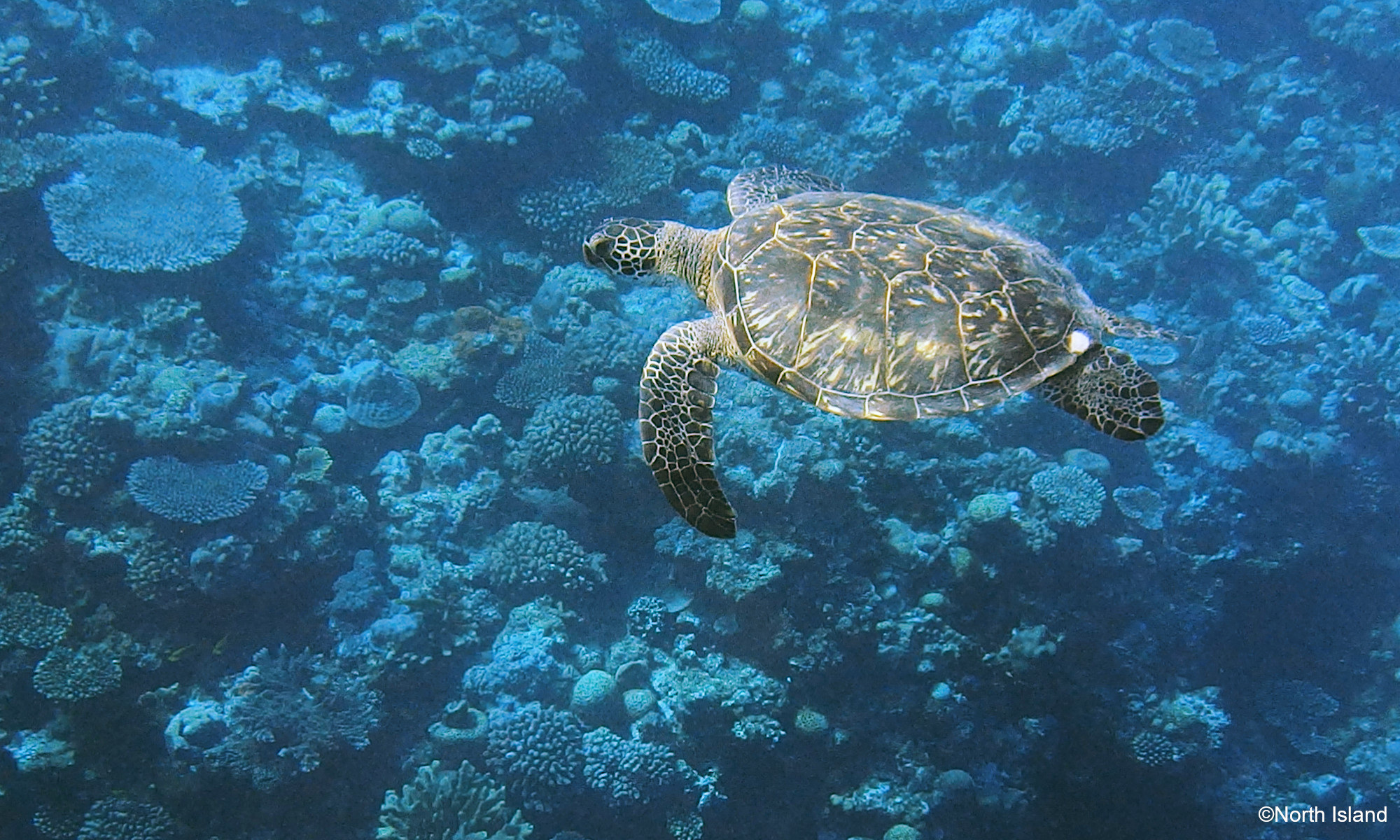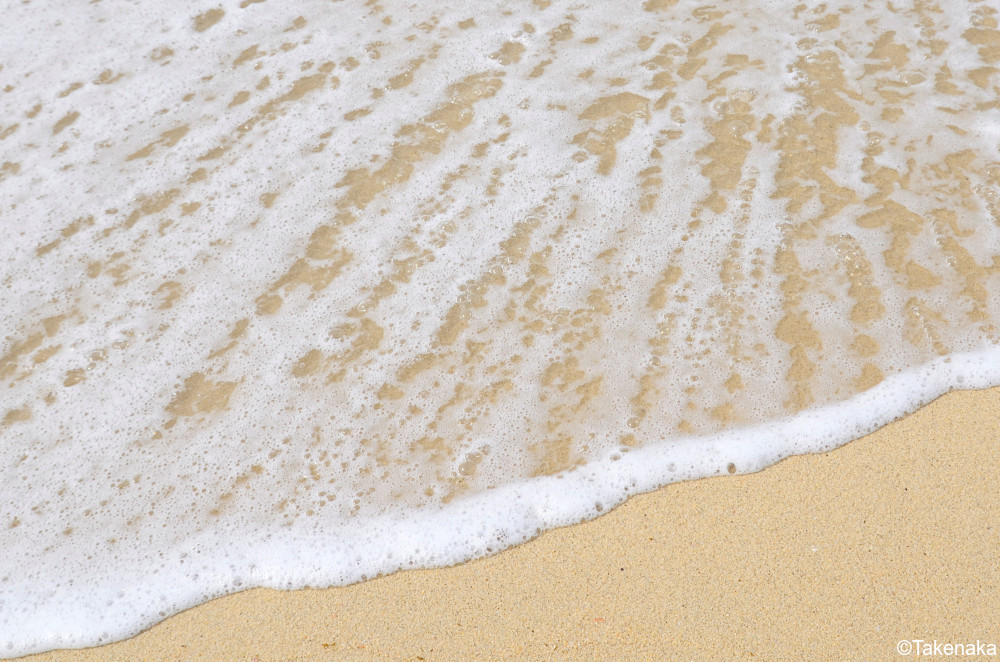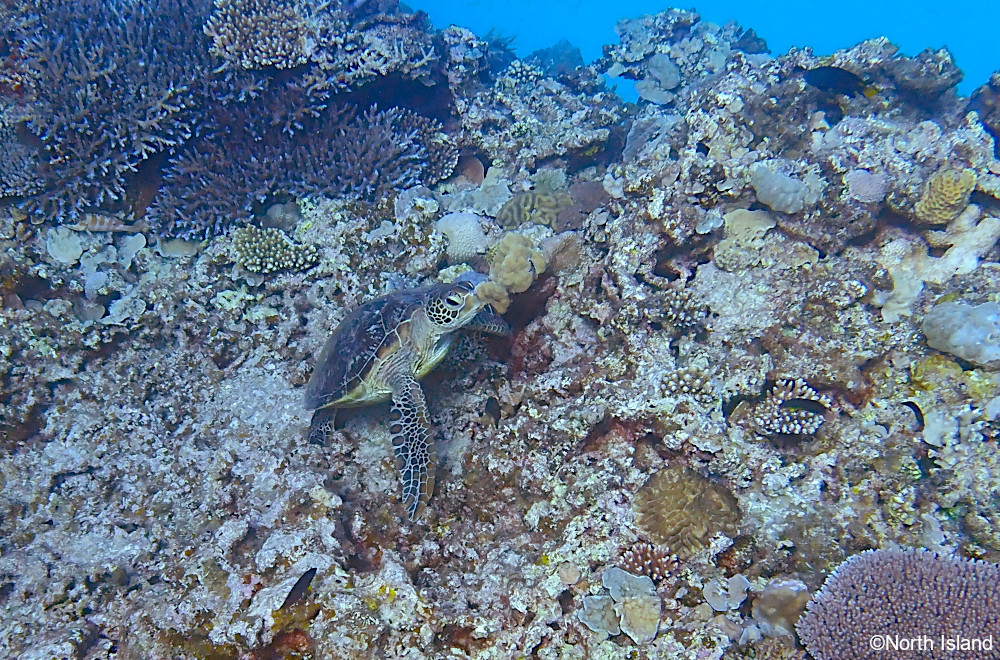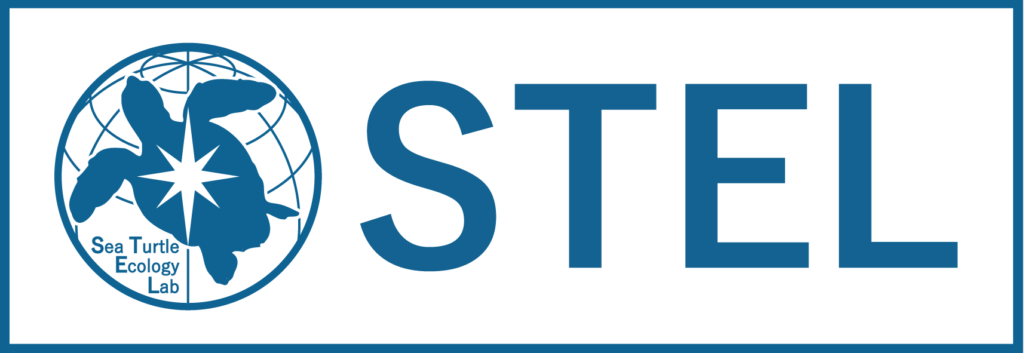
For future
Sea Turtle-ology
Photo : ©North Island
The “Sea Turtle Ecology Lab (STEL)” is a non-profit organization aimed at exploring the fundamental ecology of sea turtles through collaboration with researchers, NGOs, and NPOs.
The habitats and breeding grounds of sea turtles differ by species.
For example, hawksbill sea turtles nest further inland from the beach, while loggerhead sea turtles, leatherback sea turtles, and olive ridley sea turtles lay their eggs inland and also near the shoreline.
The reason is not yet clear.
It is also known that the temperature of the sand where sea turtles lay their eggs determines the sex of the hatchlings.
Leatherback sea turtles and olive ridley sea turtles nest in similar locations, but the depth of their nests is different; leatherback sea turtles dig deep nests whereas olive ridley sea turtles dig shallow nests.
Considering the depth of the nests, the temperature of leatherback sea turtle nests should be low, and that of olive ridley sea turtles should be high.
However, the sex ratios of the hatchlings are similar.
This mechanism is not yet clear.

STEL aims to elucidate the fundamental ecology of sea turtles, and scientifically uncover their evolution and adaptation to the environment.
For future “Sea Turtle-ology”
STEL will unravel the mystery of sea turtle ecology and construct “sea turtle science (Sea Turtle-ology).”

The “Sea Turtle Ecology Lab (STEL)” is a non-profit organization aimed at exploring the fundamental ecology of sea turtles through collaboration with researchers, NGOs, and NPOs.
We collaborate with domestic and international researchers and organizations to conduct surveys and research.
Membership/Donate
We will hold study meetings and lectures on sea turtles.
Let’s create “Sea Turtle-ology” together with us!
We look forward to your membership!
Collaborative Research Group
